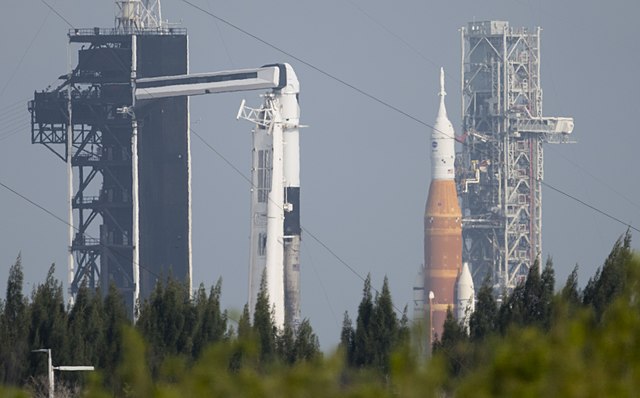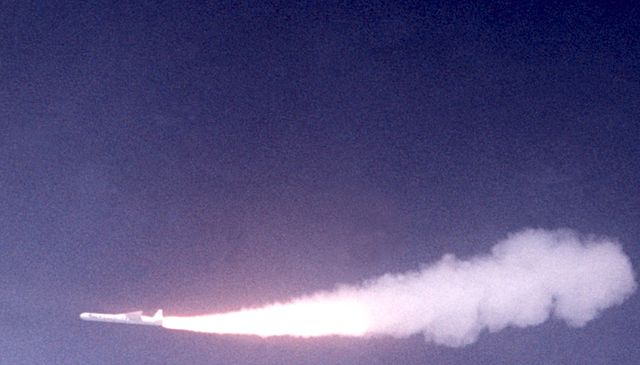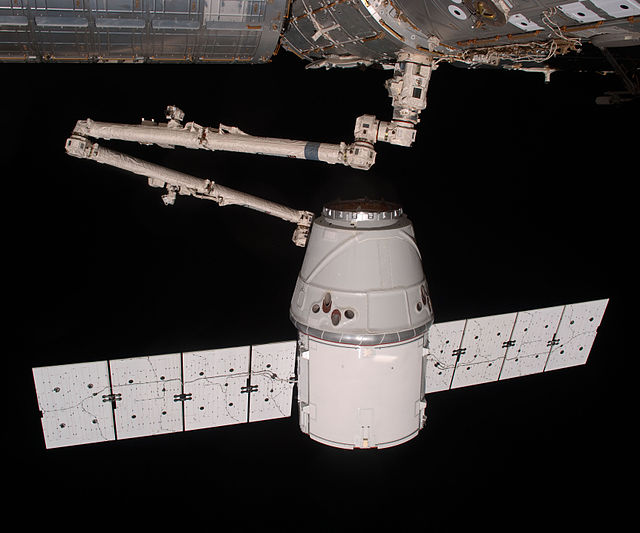The Commercial Crew Program (CCP) provides commercially operated crew transportation service to and from the International Space Station (ISS) under contract to NASA, conducting crew rotations between the expeditions of the International Space Station program. American space manufacturer SpaceX began providing service in 2020, using the Crew Dragon spacecraft, and NASA plans to add Boeing when its Boeing Starliner spacecraft becomes operational no earlier than 2025. NASA has contracted for six operational missions from Boeing and fourteen from SpaceX, ensuring sufficient support for ISS through 2030.
Sierra Nevada's Dream Chaser, non-selected finalist
Crew Dragon C204 (right), later destroyed during testing
Commercial Crew Program vehicles docked to ISS at the same time
Image: Crew Dragon at the ISS for Demo Mission 1 (cropped)
Private spaceflight refers to spaceflight activities undertaken by non-governmental entities, such as corporations, individuals, or non-profit organizations. This contrasts with public spaceflight, which is traditionally conducted by government agencies like NASA, ESA, or JAXA.
A juxtaposition of private (left) and public (right) spaceflight. From Kennedy Space Center LC-39, taken on April 6, 2022. Left: SpaceX, with Falcon 9 for Axiom Mission 1 Right: NASA, with Space Launch System for Artemis 1
Launch of a Proton rocket
First launch of the Pegasus rocket, from a NASA-owned B-52
The SpaceX Dragon berthing with the ISS during its final demonstration mission, on 25 May 2012








